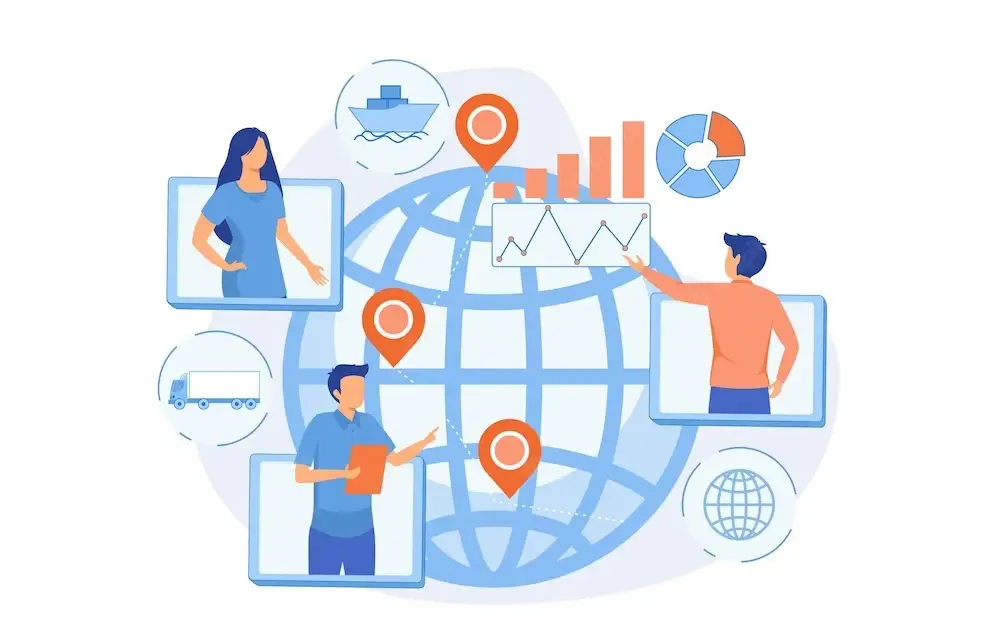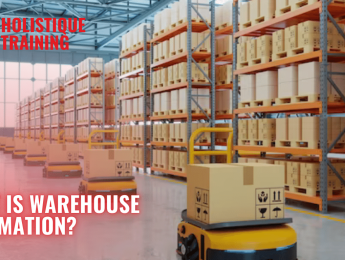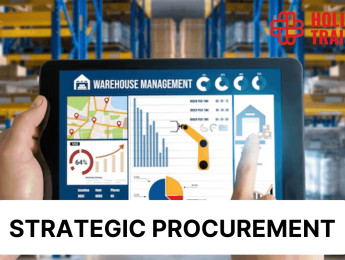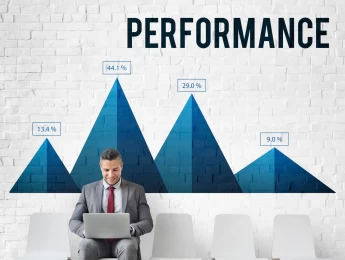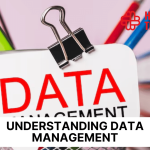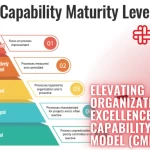Embedded within the intricate web of modern commerce lies a crucial element that fuels the engine of global business success: the fluid movement of goods and resources. At the heart of this intricate ballet is logistics management – an artful symphony of strategic coordination and precise execution that ensures the seamless flow of products from inception to the hands of the consumer. In this guide, we embark on a comprehensive journey through the multifaceted realms of logistics management, deciphering its nuanced intricacies, shedding light on its undeniable indispensability, and unravelling the carefully crafted strategies that underpin its seamless execution. Join us as we navigate the labyrinthine corridors of supply chains, explore the intricacies of transportation modes, and uncover the strategic manoeuvres that drive efficiency, cost-effectiveness, and unparalleled customer satisfaction. Welcome to the world of logistics management – where every movement matters and where success is measured not only in miles covered but in the impeccable orchestration of interconnected processes that define the very essence of modern commerce.
Understanding Logistics Management
Logistics management, at its core, is the strategic coordination and implementation of the movement, storage, and distribution of goods, services, and information from point of origin to point of consumption. It involves meticulous planning, execution, and monitoring to ensure that resources are transported efficiently, cost-effectively, and in a timely manner. Logistics management plays a pivotal role in streamlining supply chains, enhancing customer satisfaction, and ultimately boosting a company's competitive advantage.
Differentiating Logistics Management from Supply Chain Management
While logistics management and supply chain management are often used interchangeably, they represent distinct aspects of the broader business framework. Supply chain management encompasses the end-to-end processes that cover the entire journey of a product, from raw material sourcing to its final delivery to the end consumer. On the other hand, logistics management focuses specifically on the movement and transportation of goods within this supply chain.
In essence, supply chain management is the umbrella under which logistics management operates. While supply chain management involves strategic decisions about procurement, production, and distribution, logistics management zooms in on the tactical and operational aspects of transporting goods efficiently and effectively.
Exploring Types of Logistics Management
Logistics management can be categorised into various types based on the nature of the goods, the transportation mode, and the overall objective. Some of the prominent types include:
1- Inbound Logistics
Inbound logistics focuses on the movement and management of materials, components, and resources from suppliers to the production facilities of a company. This intricate process involves a series of tasks, starting with procurement – the careful selection and acquisition of raw materials. Once procured, these materials must be efficiently transported, often involving complex supply chain networks. Warehousing plays a pivotal role in inbound logistics, providing temporary storage and facilitating inventory control. The efficient management of inbound logistics is essential for maintaining a smooth production process, minimising delays, and optimising resource utilisation.
2- Outbound Logistics
Outbound logistics, in contrast, centres on the distribution of finished products from the manufacturer's location to the end consumers. This phase of the logistics process is equally intricate, involving meticulous planning and execution. Order processing marks the beginning, where customer orders are received, verified, and prepared for fulfilment. Packaging becomes a crucial aspect, ensuring that products are not only protected during transportation but also presented in a manner that enhances brand image. The transportation phase involves selecting the most cost-effective and efficient means of delivering products to various destinations. Finally, delivery to end consumers completes the outbound logistics cycle, with timely and accurate delivery playing a pivotal role in customer satisfaction and brand loyalty.
3- Reverse Logistics
Reverse logistics addresses the often-overlooked aspect of handling returned or faulty products. In today's consumer-driven market, product returns are inevitable, whether due to defects, dissatisfaction, or changes in customer preferences. Reverse logistics involves the efficient management of this process, encompassing product recalls, returns management, recycling, and waste disposal. Companies need robust systems in place to assess the condition of returned products, determine whether they can be resold or refurbished, and handle environmentally responsible disposal when necessary. Effectively managing reverse logistics not only mitigates financial losses but also contributes to sustainability efforts by reducing waste and promoting recycling.
4- Third-Party Logistics (3PL)
The outsourcing of logistics activities to third-party service providers characterises third-party logistics (3PL). This can include various functions such as transportation, warehousing, order fulfilment, and other supply chain activities. By leveraging the expertise and resources of external logistics specialists, companies can focus on their core competencies while benefiting from the efficiency and cost-effectiveness brought about by specialised logistics providers. 3PL providers often have established networks, advanced technologies, and economies of scale that enable them to streamline logistics processes and adapt to the dynamic demands of the market.
5- Fourth-Party Logistics (4PL)
Taking outsourcing to a more comprehensive level, fourth-party logistics (4PL) involves an external organisation managing the entire supply chain on behalf of a company. This includes coordinating multiple 3PL providers, optimising logistics processes, and providing strategic oversight. The role of a 4PL provider goes beyond the operational aspects of logistics; it encompasses strategic planning, performance monitoring, and continuous improvement initiatives. By entrusting the entire supply chain management to a 4PL provider, companies can benefit from a holistic and integrated approach to logistics, allowing for greater agility and responsiveness to market dynamics.
Understanding the nuances of these logistics types is crucial for businesses seeking to optimise their supply chain processes. Each type plays a specific role in the broader logistics landscape, and an effective logistics strategy involves a careful orchestration of these elements to ensure seamless and efficient operations. As businesses continue to navigate the complexities of the global market, mastering the intricacies of inbound, outbound, reverse, 3PL, and 4PL logistics becomes a key determinant of success in the competitive realm of modern commerce.
The Significance of Logistics Management
The importance of effective logistics management cannot be overstated in today's competitive business landscape. Here are a few key reasons why logistics management holds such a pivotal role:
Cost Efficiency
At the forefront of the significance of logistics management is its role in achieving cost efficiency throughout the supply chain. By optimising the movement, storage, and distribution of goods, logistics managers can ensure that resources are utilised optimally. This optimisation leads to a reduction in transportation costs, as efficient routes and modes are selected. Additionally, meticulous management of inventory levels minimises carrying costs, preventing excess stock that ties up capital or inadequate stock that can result in missed opportunities. Efficient utilisation of storage facilities further contributes to cost savings. Ultimately, cost efficiency in logistics management directly translates to improved profitability for businesses operating in a competitive market.
Customer Satisfaction
In the realm of modern commerce, customer satisfaction is a cornerstone of business success. Logistics management plays a pivotal role in achieving this satisfaction by ensuring the timely and accurate delivery of products. In the age of instant gratification, where consumers expect rapid fulfilment of their orders, efficient logistics operations become a critical component of the customer experience. An impeccably managed supply chain, from inbound logistics to outbound logistics, contributes to meeting customer expectations regarding product availability and delivery times. The reliability of logistics operations not only enhances customer satisfaction but also fosters brand loyalty, as customers are more likely to return to a brand that consistently delivers on its promises.
Market Expansion
Efficient logistics enable companies to transcend geographical boundaries and expand their market reach. In today's globalised markets, reaching customers in distant locations is not just a competitive advantage; it is often a strategic necessity. Logistics management ensures that products can be transported to diverse markets in a timely and cost-effective manner. This involves coordinating transportation modes, navigating international regulations, and establishing robust supply chain networks. The ability to expand market reach through effective logistics operations is particularly crucial for businesses looking to capitalise on emerging opportunities in new regions or countries. By conquering logistical challenges, companies position themselves to tap into previously untapped consumer bases.
Risk Management
In the dynamic landscape of global business, risks are inherent, ranging from supply chain disruptions to unexpected delays. Logistics management involves the strategic deployment of measures to mitigate these risks effectively. By anticipating potential disruptions and bottlenecks in the supply chain, logistics managers can develop contingency plans and alternative routes. Whether it's natural disasters, geopolitical events, or unforeseen shifts in demand, a well-crafted logistics strategy includes risk management protocols. This proactive approach enhances overall business resilience, ensuring that companies can navigate challenges and continue to meet customer demands even in the face of unexpected events. A robust logistics management system is, therefore, a crucial component of a company's risk mitigation strategy.
Adaptability to Market Dynamics
Beyond these key pillars, the significance of logistics management lies in its role as a dynamic and adaptable force in the face of evolving market dynamics. As consumer behaviours change, technology advances, and global events unfold, logistics management must adapt to stay ahead. This adaptability involves embracing innovations in transportation technologies, implementing advanced tracking and analytics systems, and incorporating sustainable practices. In an era where agility is synonymous with competitiveness, logistics management serves as the compass guiding businesses through the ever-shifting currents of the market.
In summary, the significance of logistics management in modern commerce is multi-faceted and undeniable. From the foundational aspect of cost efficiency to the strategic roles of customer satisfaction, market expansion, and risk management, effective logistics operations are a cornerstone of business success. As companies strive to thrive in the competitive global landscape, recognising and harnessing the power of logistics management becomes not just a necessity but a strategic imperative. It is through the seamless orchestration of these logistical elements that businesses can navigate the complexities of the supply chain, delight customers, and position themselves for sustained success in the dynamic world of commerce.
Navigating the Logistics Management Process
The logistics management process comprises several interconnected stages that ensure the smooth movement of goods and resources. Here's a breakdown of the key stages involved:
1. Planning
The planning stage serves as the foundation for effective logistics management. Here, logistics managers engage in the development of a comprehensive strategy that outlines transportation routes, modes, and the resources required for a smooth supply chain operation. This includes estimating demand based on historical data and market trends, setting optimal inventory levels to meet customer needs without excess, and defining key performance indicators (KPIs) to measure the success of logistics operations. The planning process is not static; it requires a forward-looking approach, considering potential changes in market conditions, supplier capabilities, and customer expectations.
Strategic planning in logistics involves making decisions about the most cost-effective transportation modes, the selection of reliable suppliers, and the establishment of efficient warehouse locations. The goal is to create a roadmap that ensures the optimal utilisation of resources while meeting the demands of a dynamic market.
Table 1: Key Performance Indicators (KPIs) to Measure the Success of Logistics Operations
KPIs | Description |
On-Time Delivery | Timeliness of product delivery to customers. |
Inventory Turnover | Rate at which inventory is sold and replaced. |
Order Accuracy | Precision in fulfilling customer order details. |
Transportation Cost per Unit | Efficiency in managing transportation expenditures. |
Warehouse Utilisation | Effective use of storage space and resources. |
2. Implementation
Once the logistics plan is in place, the implementation stage kicks in. This phase involves executing the logistics plan meticulously. It includes tasks such as order processing, where customer orders are received, verified, and prepared for fulfilment. Transportation scheduling is a critical aspect, determining the most efficient routes and modes for moving goods. Coordination with various stakeholders, including suppliers, carriers, and distributors, is essential to synchronise the movement of resources seamlessly.
The implementation stage is where the theoretical aspects of the logistics plan are put into action. It requires effective communication and collaboration among all parties involved, ensuring that each component of the supply chain works in harmony. This phase is characterised by a hands-on approach, where logistics managers oversee the day-to-day operations and make real-time decisions to address any unforeseen challenges that may arise.
3. Monitoring and Control
Constant vigilance is a cornerstone of effective logistics management. The monitoring and control stage involves real-time tracking of transportation routes, inventory levels, and performance against established KPIs. This stage is crucial for identifying any deviations from the plan and allows for timely corrective actions. Advanced technologies, such as Internet of Things (IoT) devices and tracking systems, provide real-time visibility into the movement of goods, enabling logistics managers to make informed decisions promptly.
Regular audits and performance reviews contribute to maintaining the integrity of the logistics process. Any discrepancies or inefficiencies identified during this stage can be addressed promptly, preventing potential disruptions and ensuring that the supply chain continues to operate smoothly. The monitoring and control stage is a proactive measure to maintain the precision required for successful logistics operations.
4. Optimisation
Continuous improvement is a hallmark of effective logistics management. The optimisation stage involves data analysis and performance evaluation to identify areas for improvement. By leveraging data-driven insights, logistics managers can make informed decisions that lead to cost savings and operational efficiencies.
Analysing historical data allows for the identification of trends, enabling better forecasting of demand and more accurate inventory management. Performance evaluation involves assessing the effectiveness of transportation routes, the efficiency of warehouse operations, and the overall responsiveness of the supply chain to market dynamics. This stage is not a one-time effort but an ongoing process of refinement and adaptation to ensure that logistics operations remain aligned with the goals of the organisation.
The optimisation stage is where logistics managers embrace innovative technologies such as transportation management systems (TMS) and warehouse management systems (WMS). These tools provide enhanced visibility into logistics processes, streamline operations, and offer predictive analytics that aid in strategic decision-making. By embracing optimisation as a continuous journey, logistics managers position their organisations to stay competitive in an ever-evolving market.
5. Adaptability to Market Dynamics
Beyond these key stages, the logistics management process is characterised by its adaptability to the dynamic nature of the market. As consumer preferences change, new technologies emerge, and global events unfold, logistics management must adapt to stay ahead. This adaptability involves embracing innovations in transportation technologies, implementing advanced tracking and analytics systems, and incorporating sustainable practices. In an era where agility is synonymous with competitiveness, logistics management serves as the compass guiding businesses through the ever-shifting currents of the market.
In short, the logistics management process is a sophisticated journey that demands strategic thinking, operational excellence, and adaptability. From the foundational stage of planning to the hands-on implementation, vigilant monitoring, continuous optimisation, and adaptability to market dynamics, each stage plays a crucial role in orchestrating the intricate dance of the supply chain. By mastering the logistics management process, businesses can not only meet the demands of the current market but position themselves for sustained success in the face of future challenges and opportunities.
Tips for Efficient Logistics Management
Mastering logistics management requires a blend of strategic thinking, operational excellence, and adaptability. Here are some tips to enhance your logistics management practices:
Invest in Technology
Leveraging advanced technologies is crucial for streamlining logistics operations and enhancing overall efficiency. Transportation Management Systems (TMS), Warehouse Management Systems (WMS), and predictive analytics are powerful tools that provide real-time visibility into logistics processes. TMS helps optimise transportation routes, WMS enhances warehouse operations, and predictive analytics assists in making informed decisions based on historical and real-time data. Embracing these technologies empowers logistics managers to automate routine tasks, improve visibility, and enhance decision-making capabilities, ultimately leading to more efficient and responsive supply chain operations.
Collaborate and Communicate
Effective communication and collaboration are the backbone of efficient logistics management. Building strong relationships with suppliers, carriers, distributors, and other stakeholders fosters a cooperative environment. Clear communication channels ensure that everyone involved in the supply chain is well-informed, reducing the risk of misunderstandings or delays. Establishing open lines of communication also enables swift problem-solving, enhancing the agility of logistics operations. Regular meetings, feedback sessions, and collaborative planning contribute to a well-coordinated and responsive logistics network.
Prioritise Data Analytics
Data-driven insights provide valuable information about logistics performance, trends, and areas for improvement. Regularly analysing data allows logistics managers to make informed decisions and identify optimisation opportunities. Key metrics such as delivery times, order accuracy, and inventory turnover can be tracked and analysed to drive continuous improvement. By harnessing the power of data analytics, logistics managers can uncover patterns, forecast demand more accurately, and proactively address potential challenges. This analytical approach enhances the overall efficiency of logistics processes and contributes to data-informed decision-making.
Forecast Accurately
Accurate demand forecasting is a critical aspect of efficient logistics management. By understanding market trends, historical data, and potential disruptions, logistics managers can optimise inventory levels, preventing overstocking or understocking. Advanced forecasting techniques, coupled with real-time data, enable logistics teams to align production and transportation schedules with actual demand. This not only reduces carrying costs associated with excess inventory but also ensures that products are available to meet customer demand, contributing to improved customer satisfaction.
Implement Lean Practices
Implementing lean principles is a key strategy for enhancing efficiency in logistics management. Lean practices focus on minimising waste, optimising processes, and eliminating inefficiencies throughout the supply chain. Techniques such as just-in-time inventory management, where goods are ordered and received only as needed, help reduce excess inventory and associated carrying costs. Continuous improvement initiatives, inspired by lean methodologies, encourage logistics managers to identify and address bottlenecks, inefficiencies, and non-value-added activities, leading to streamlined operations and cost savings.
Plan for Contingencies
Unforeseen disruptions are inevitable in logistics, and effective management requires a proactive approach to planning for contingencies. Developing comprehensive contingency plans that outline alternative routes, backup suppliers, and emergency response procedures helps mitigate the impact of disruptions. Logistics managers must anticipate potential challenges such as natural disasters, geopolitical events, or transportation disruptions and have well-defined strategies in place to navigate these situations. A robust contingency planning framework enhances the resilience of logistics operations, ensuring that the supply chain can adapt to unexpected events with minimal disruption.
In summary, mastering efficient logistics management involves embracing a holistic approach that integrates technology, communication, data analytics, accurate forecasting, lean practices, and proactive contingency planning. By implementing these tips and best practices, logistics managers can optimise the supply chain, reduce costs, enhance customer satisfaction, and position their organisations for success in the ever-evolving landscape of modern commerce. As the logistics industry continues to evolve, staying at the forefront of innovative practices and technologies will be essential for businesses seeking a competitive edge in the dynamic global market.
In Conclusion
Logistics management is the beating heart of modern business operations. It encompasses the intricate orchestration of processes, resources, and information to ensure the seamless movement of goods from point A to point B. Distinct from supply chain management, logistics management focuses on the tactical execution of transportation, warehousing, and distribution activities. Its importance cannot be overstated, as it contributes to cost efficiency, customer satisfaction, market expansion, and risk management. By mastering the logistics management process and implementing best practices, businesses can position themselves for success in today's dynamic and competitive marketplace.
If you're eager to delve even deeper into the art and science of logistics management, make sure to check out our course, ‘Effective Management of Logistics and Transport Services.’ This course offers a unique opportunity to gain hands-on insights, practical strategies, and industry-best practices, equipping you with the skills to not only navigate the challenges but also harness the immense potential that logistics management holds in today's dynamic business landscape. Don't just follow the path; lead the way with informed decisions, strategic thinking, and efficient logistics management. Enrol now!
Frequently Asked Questions(FAQ)
What exactly is logistics management?
Logistics management is the strategic coordination of goods, services, and information movement from origin to consumption. It ensures efficient, cost-effective, and timely resource transportation.
How does logistics management differ from supply chain management?
While supply chain management covers end-to-end processes from raw material to consumer, logistics management focuses on tactical transportation and distribution within the supply chain.
What are the types of logistics management?
There are inbound logistics (supplier to producer), outbound logistics (manufacturer to consumer), reverse logistics (returns and recycling), 3PL (outsourced logistics), and 4PL (external supply chain management).
Why is logistics management important for businesses?
Efficient logistics reduce costs, enhance customer satisfaction, aid market expansion, and mitigate risks, contributing to a competitive edge in the business landscape.
What are some key tips for effective logistics management?
Invest in technology (TMS, WMS), collaborate with stakeholders, prioritise data analytics, forecast accurately, implement lean practices, and plan for contingencies to optimise logistics operations.


